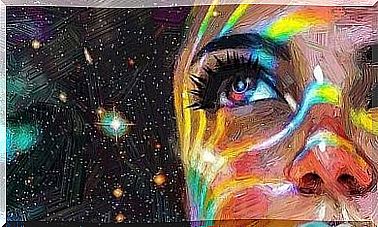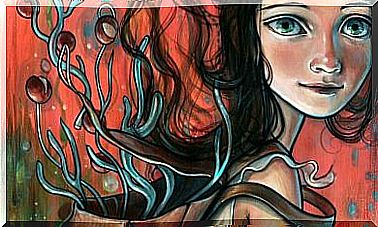For You Who Know My Name But Not My Personal Story

There are many people who claim to know us; however, there are those who speak to us without listening to us, those who look at us without seeing us, the same ones who do not hesitate to label us either. In this world of quick judgment, there are not many patient minds, those capable of understanding that behind a face there is a battle, that behind a name there is a story.
Daniel Goleman explains to us in his book “Social Intelligence” a detail that does not go unnoticed. As many other psychologists and anthropologists have explained to us, the human brain is a social organ. Relationships with our fellow men are essential for survival. However, Goleman points out one more aspect: we are often “painfully social” too.
These changes do not always bring a benefit, a positive reinforcement that we must learn to integrate. Today our biggest predatory threat is, surprisingly, our own species. A threat we might liken to fuel that burns especially in this emotional world; a place that is often violated, criticized or put to the test through a label that objectifies us.
Each one of us is like ships exploring more or less calm or more or less turbulent oceans. Within us, and hanging from the anchor of this beautiful ship, our personal battles are hanging and will be fought. The ones we try to move forward with despite everything, the ones that sometimes leave us stranded, without the rest of the world really knowing what’s happening to us, what makes us stand still or what hurts us.
We propose that you reflect on this.

The story that no one sees, the book that you carry within you
Placing a label is, above all, renouncing our ability to perceive or the opportunity to discover what is beyond an appearance, a face, a name. However, it takes three things to get to this delicate layer of human interaction: sincere interest, emotional closeness, and quality time. Dimensions that currently seem to have expired in many souls.
We are aware that many of the therapeutic approaches that are currently used focus their importance on present opportunities, on this “here and now” in which the past has no reason to determine us. However, people, whether they like it or not, are made up of stories, of existential fragments, of chapters that shape a past plot of which we are the result.
A past does not determine a destiny, we know that, but it shapes the hero or heroine we are today. So this process, this personal story that we have so proudly survived, is something that not everyone knows about, and something that, in turn, we choose to share with only a few people. Therefore, the only thing we ask for in the course of our day to day is mutual respect and not to resort to banal labels in which the wonderful particularities of the human being are patterned.

Let’s change the focus of attention
Let’s imagine for a moment a fictional person. Her name is Maria, she is 57 years old and has started working in a store a few months ago. Her storemates label her as shy, reserved, boring, someone who avoids looking her in the eye when they start a conversation with her. Very few people know Maria’s personal story: she suffered abuse for more than 20 years. Now, after recently separating from her husband, she has returned, after a long time, to the job market.
Falling into quick judgment and the label is easy. Maria is fully aware of how others see her, but she knows she needs time, and if there’s something she doesn’t want, it’s for others to feel sorry for her. She doesn’t have to tell her story, she doesn’t have to if she doesn’t want to, the only thing she needs is for the people around her to change the focus of attention.
Instead of focusing our interest only on the needs of others, of carrying out a quick analysis resulting in the classic stereotype to delimit what is different from ourselves, we have to be able to turn off judgment to activate empathy. Only this dimension is what makes us “people” and not mere human beings living together in the same setting.

We cannot forget that empathy has a very concrete objective in our emotional brain: to understand the reality of the other in order to guarantee their survival. We have to learn to be emotional enablers rather than mere energy predators, mood eaters or self-esteem annihilators.
We all face very intimate battles, sometimes fleshless ones. We are much more than our identity card, curriculum or academic record says. We’re made of stellar matter, as Carl Sagan once said, we’re meant to shine, but sometimes we choose to smother each other’s light. Let’s avoid doing this and invest more in respect, sensitivity and altruism.









